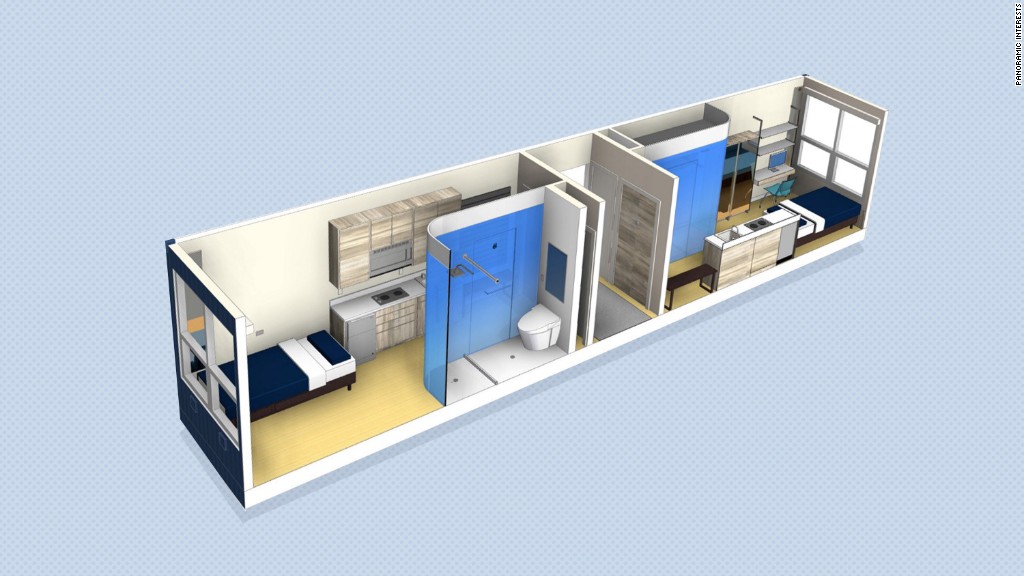
Seattle has a thriving economy and booming housing market, and is home to successful businesses like Amazon and Starbucks. But it also has a homeless crisis and an affordable housing problem.
To help alleviate both, the Seattle City Council is weighing a proposal to impose a new tax on big businesses.
The proposed tax amounts to 26 cents per working hour per employee in Seattle. That works out to roughly $540 a year for every full-time employee.
Only businesses that generate at least $20 million of annual revenue in Seattle itself would be subject to the tax.
The legislation would affect less than 3% of employers in the city, or about 585 businesses, according to Councilmember M. Lorena Gonzalez, a co-sponsor of the legislation.
Related: Good luck buying a home in Seattle
Last fall, the council rejected a similar "head" tax proposal that would have raised less money but would have affected more companies.
The proposed tax is expected to raise $75 million a year, three quarters of which would be used to build roughly 1,800 affordable housing units. The other quarter would be spent on emergency and shelter services for the homeless.
By 2021, the per-head tax would convert to a 0.7% payroll tax and still raise $75 million, according to materials from the Council.
Amazon could pay $20 million or more a year
The company that likely would owe the most under such a tax is Amazon, Seattle's largest private sector employer. It employs more than 45,000 people in the city. If the proposed tax goes into effect, Amazon could be subject to a head tax north of $20 million a year.
Amazon, which declined to comment on the proposal, notes that it already contributes economically in many ways to Seattle. For example, it will provide a permanent location for a shelter in one of its new office buildings by 2020. It would be run by the nonprofit Mary's Place, which already had temporary use of two vacant Amazon buildings to shelter the homeless since 2016.
Starbucks did not respond to a request for comment.
Related: Typical Amazon employee makes less than you think
Prosperous big businesses can in turn generate a lot of economic activity and revenue for their host city. And they may donate goods, services or money to critical social causes.
But the co-sponsors of the bill note that a major cause of homelessness is the higher cost of housing that results when more workers move to a city for jobs that pay more than long-time residents have been earning. And the demand to build affordable housing doesn't keep pace.
"A progressive tax on businesses most benefiting from this growth is our best option because we already rely heavily upon regressive property and sales taxes that hit everyone equally," Councilmember Lisa Herbold said in a statement.
Property and sales taxes are the city's main source of revenue since Seattle does not have an income tax. Businesses there also pay a business and occupancy tax.
Critics of the Council proposal, however, say it's a tax on jobs that could curb growth.
While a head tax isn't unheard of, "they are rare, and for good reason: most cities recognize that it's not in the best interest to penalize employment," said Jared Wolczak, a senior policy analyst at the Tax Foundation.
Certainly a tax that is seen as too onerous could influence a company's behavior, noted Tax Policy Center researcher Richard Auxier. But it's also true that a company locates itself in a place for more reasons than taxes, Auxier added. For instance, a business has a better chance of prospering in a socially stable city with good infrastructure, good schools and an educated workforce.


